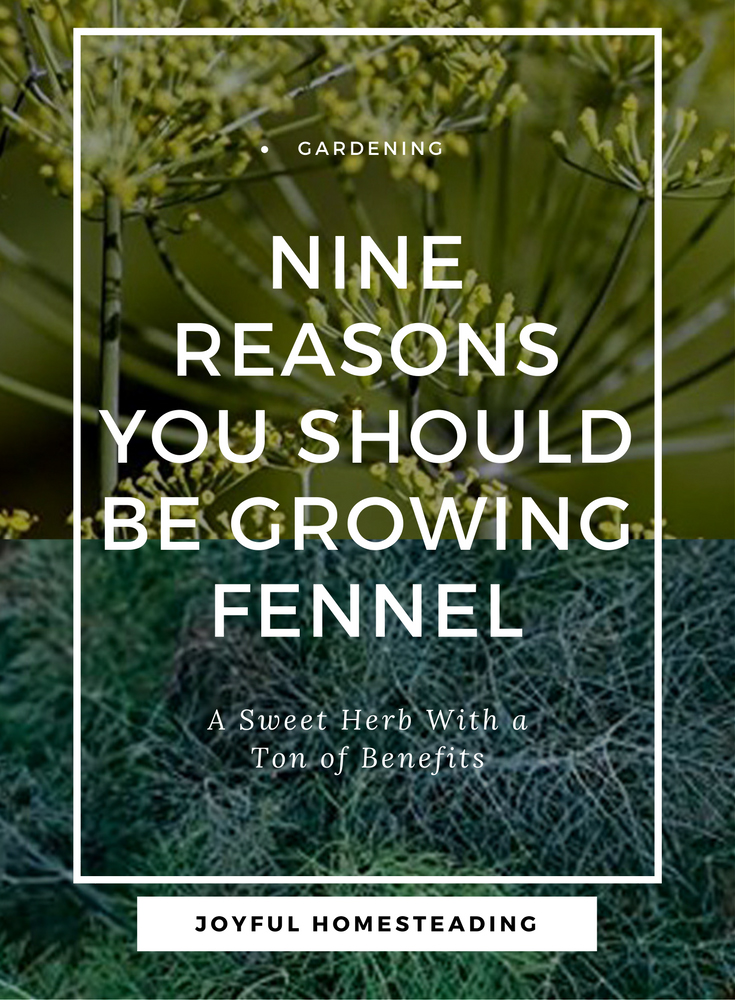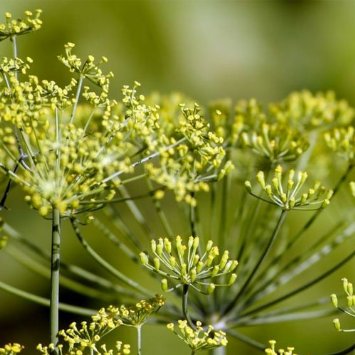Growing Fennel
Tips and Medicinal Uses
Growing Fennel is easy, especially if you have good, rich soil with excellent drainage. This sweet herb is an excellent addition to your garden.
Fennel, a sweet-tasting perennial that can withstand freezing temperatures, has been respected and used medicinally since the first century A.D. when Pliny the Elder wrote about it in his famous Naturalis Historia or "Natural History".
According to the Modern Herbal, Pliny listed twenty-two remedies the plant could help with and even stated that by rubbing against the plant,
serpents could shed their skins and sharpen their eyesight.
In addition to Pliny, many of the older herbalists believed that Fennel would strengthen eyesight as well. Here are nine reasons you should be growing fennel in your garden.

1. Growing Fennel is Easy
Although it prefers a rich soil, fennel is fairly easy to grow and will thrive just about anywhere so long as there is good drainage and plenty of sun. Sprinkle the seeds on your bed and cover them lightly with soil. By the way, Dill grows poorly when planted next to Fennel.
2. Fennel Can Help You Lose Weight
As early as the 17th century, the herb Fennel has been thought to be helpful in both suppressing the appetite and helping with weight loss.
3. Fennel is a Woman's Friend
Fennel tea will help increase the flow of breast milk. Also, if you are a nursing mom, and your breasts become sore and impacted, pound the leaves and stems of fennel and make them into a paste to help relieve the swelling.
Fennel can also ease the symptoms of menopause.
4. Good For Kidney Troubles
Fennel tea is especially helpful for breaking up kidney stones.
5. Fennel is Good for Tummy Troubles
The next time you're experiencing nausea, drink some fennel tea. It aids in digestion and can even ease hiccups.
6. Fennel is Beneficial to the Liver
Drinking fennel tea regularly is supposed to help purify the liver and even reverse the damage done by alcohol abuse.
7. A Boon to Children as Well
Fennel tea can help ease colic in babies and also help expel worms in small children.
8. A Natural Breath Freshener
Forget those commercially-prepared mouthwashes that are loaded with chemicals. Instead, allow the tea to get cool and then gargle with it to freshen your breath.
9. A Safe Flea Deterrent
Fleas don't like the herb Fennel, so sprinkle it around your doorways and near your pet's bedding to repel fleas.
Growing Fennel - Harvesting Tips
Harvest Fennel when the bulbs are the size of tennis balls or bigger.
Pull up every other plant to allow the remaining plants to grow even bigger.
Your Fennel will continue growing even after several hard frosts.
Harvest the seeds when the flowers of the herb Fennel have died.
Remove the seeds and dry them in a cool, dry location.
In the Kitchen
You can also cook fennel, which tastes like anise.
Learn More About Medicinal Herbs








New! Comments
Have your say about what you just read! Leave me a comment in the box below.